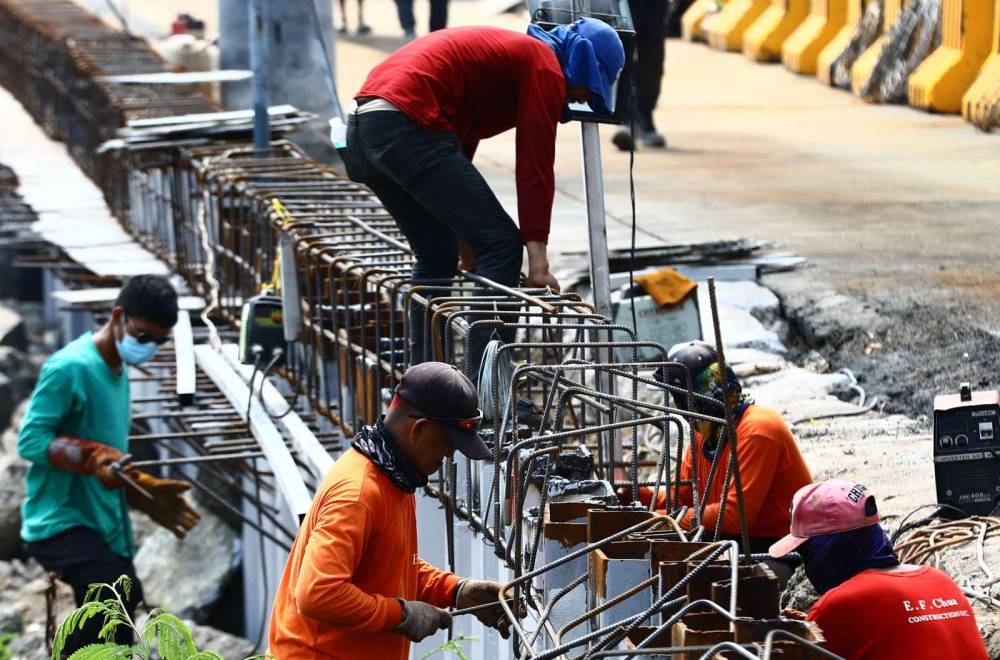
Concepcion: Marcos Plan For Calibrated Importation Will Protect Consumers and Farmers
August 17, 2022
Concepcion welcomes Food and Drug Administration’s (FDA) Push for COVID Vaccines Certificates of Product Registration (CPR)
August 22, 2022
A Golden Opportunity
I read with interest a report early this week about something called the Demographic Dividend. Last week, the Philippine Statistics Authority released data showing that the percentage of Filipinos aged 15 and below dropped from 37 percent to 30.7 percent from 2000 to 2020. Meanwhile, there are now more seniors in our population. In fact, there are twice as many 60-plus year-olds today than in 2000.
This is interesting because, with fewer children, the Philippines’s working-age population now comprises more than half (almost 64 percent) of the total; that’s a five percent increase from more than two decades ago. More people are now in the workforce. As for the seniors, many of them remain productive members of the workforce, and thanks to better healthcare, will continue to contribute for years to come.
The Commission on Population and Development calls this a “demographic dividend”, a window of opportunity that, if maximized, can help push the country into upper-middle income status. However, if this massive bank of human resource is unemployed or underemployed, it will create a burden for the smaller employed population.
The POPCOM also noted the importance of employing more women and more young people who, as observed from the data, still enjoy fewer opportunities. There is also a need to spread opportunities across the country so that Filipinos need not flock to the urban centers to find gainful employment.
I view these with added interest as it dovetails with my advocacy to promote entrepreneurship in the Philippines. MSMEs generate more than half – 63 percent – of employment in the country. By sector, you’ll find the most number of Filipinos employed in the agriculture sector, where many are also small entrepreneurs. Women also make up majority of the small entrepreneurs in the country, and we have quite a few millennials and Gen-Zs who are choosing to become entrepreneurs. These segments are the very ones that the data is telling us will need our help in finding employment. If you grow the MSMEs, you will help generate more jobs, especially for women, young people, and those in the countryside.
MSMEs and jobs were a prominent part of the agenda when, early this week, I met with Department of Labor and Employment (DOLE) Sec. Benny Laguesma to try and see how government and the private sector can collaborate and make the most of our valuable human resources. I was happy to hear that we were pretty much aligned as far as our recommendations on jobs, including skills development, the review of labor laws to create more harmony between labor and industry, and not “too much government” in this sector.
And with the TESDA (Technical Education and Skills Development Authority) now back under DOLE, there is more opportunity for the private sector to harmonize on skills development so that Filipinos will be equipped with the skills that will help them find jobs. This will also be an opportunity for our MSMEs to scale up their businesses as we help them find the training they need.
There is still much room for growth when it comes to our MSMEs. In fact, there are not enough MSMEs in the Philippines: we have only 0.9 percent per 100 Filipinos compared with 3.6 percent in Malaysia, or the whopping 24 percent in Indonesia.
There are many lessons we can glean from the MSME success of our neighbors. For one, there must be early-stage financing and other fiscal incentives to support the newly formed SMEs. We must expand their markets both here and abroad through strong export development and marketing programs. We have to train SMEs through formal programs and we need to invest in making it easier for them to start their businesses.
During our 3MOW on Wheels caravans, which we conduct in high-traffic malls in the cities, we are able to reach out to aspiring entrepreneurs and encounter common questions like, how do I register a business, or how do I get capital for this business I have in mind. And these are already the people who felt driven enough to come and ask the questions. How many more out there have the desire to build a small business, but are disheartened by stories of failure or are intimidated by the red tape they face in registering, or are afraid of borrowing to build their business?
The questions these aspiring entrepreneurs ask at our events inevitably circle back to the very elements of the three M’s that form the pillar of our advocacy at Go Negosyo: money, markets and mentoring. Provide these MSMEs with the support they need to get started by increasing access to financing, help them find markets for their products, and give them access to real-life coaching so they do not lose heart at the first sign of failure.
We have also started to put more emphasis on digital transformation. The pandemic has expedited the increased use of the internet in both transacting sales and facilitating payments, and we must not lose the momentum.
Aspiring entrepreneurs are a large, untapped segment that can potentially generate so many jobs and even more revenue for the Philippines. Help the entrepreneurs, and you help more Filipinos get jobs.

2/F RFM Corporate Center, Pioneer cor. Sheridan Sts. Mandaluyong City, Metro Manila, Philippines

